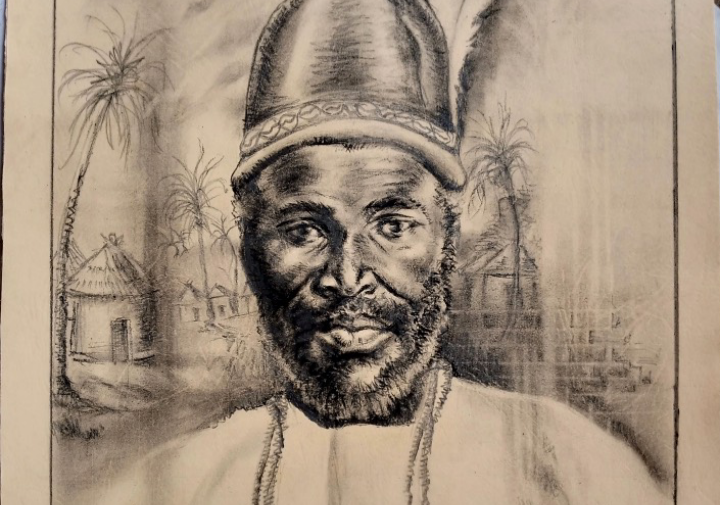While looking forward to when Nigerian digital companies will be counted in the number of the top 100 Forbes list globally, it is pertinent to sensitize the entrepreneurship space on what the grandest are doing to maintain great brands and push through their innovation to consumers who always want some more. Success is no different than any other skill. Duplicate the actions and mind-sets of successful people, and you will create success for yourself, says Grant Cardone.
Imagine an organization that creates a fun work environment yet stringent performance timelines to ensure its ability to continue to innovate and lead; or one in which learning is core to its corporate existence, as every team member is expected to become a better version of themselves. Culture, they say, eats strategy for lunch; which informs why the best companies cannot afford a fluke if their results must be repeatable over time. This is the crucible test for truly great brands as each tries to lives up to what I have termed the W5 (which was what was wanted) – when goals align with reality for the company and its customers every time.
In this article, our particular interest will be to consider the way of life of teams working in 5 companies doing amazing work towards the creation of new realities in today’s world. Ranked among the top 10 most valuable tech companies in the world, we have: Apple Inc., Microsoft Corp., Alphabet Inc., Amazon.com Inc. and Facebook Inc. It is much easier to duplicate success when you know what created same in the first place.
Apple Inc (founded on 1 April 1976, with reported total annual sales for 2021 of $365.8 billion, up a significant 33% from the $274.5 billion it reported in 2020): They were the first company to hit $1 trillion valuation, and have maintained lead-status as the world’s preeminent tech stock. The company’s cultural features focus on maintaining a high level of innovation that involves creativity and a mindset that challenges conventions and standards. The culture at Apple is evident in its intense work ethics. Though they maintained a relaxed and casual work environment, team members have a very strong commitment to deadlines. Some analysts have summarized the work culture at Apple as ‘fun, yet demanding‘. Employees at Apple have to run their own show and work in a challenging and creative environment. They adopted a style that was not too formal or hierarchical and a more results-driven approach which has worked well for them to date. Apple’s revenue in 2021 alone is about two-thirds the GDP of Nigeria for same year, which means that companies have the tendency to outgrow countries, when they are well cultured and structured for dominance. So much we can learn from Apple as we build a truly new experience of value for Nigerians.
Advertisement
Microsoft Inc. (founded on 4 April 1975, with reported revenue for 2021 of $168 billion, compared with $143.02 billion it reported in 2020) core values are innovation, trustworthy computing, diversity and inclusion, corporate social responsibility, philanthropies, and environment. These values enabled the management to direct all workers towards the mission of the firm, which is to empower every person and every organization on the planet to realize their full potential. Microsoft teams see themselves as a family of individuals united by a single, shared mission; and the ability to work together makes their dreams believable and, ultimately, achievable. They build on the ideas of others and collaborate across boundaries to bring the best of Microsoft to its customers as one. They strongly believe that achieving their mission becomes possible if they live out their culture. Teams start with becoming learners in all things (having a growth mindset). They then apply that mindset to learning about their customers, being diverse and inclusive, working together as one, to make a difference in the world. Dreams come true when pursued with focused passion; such is the case of Microsoft and its diverse range of product offerings.
Facebook (founded in February 2004 at Cambridge Massachusetts United States, with a reported revenue of $85.96 billion in 2020): The culture at Facebook is open and transparent with no hierarchies. The atmosphere of the company is very loose and casual, and it’s an environment that well-suits extroverts. Colleagues want you to speak out, say what’s on your mind, and be an active participant in all aspects of work – just like on their social media. There are almost no internal barriers in terms of access to company information. The company is well known for its ‘hip geek culture’ fostered by its founder Mark Zuckerberg. Since inception, he has attracted the best talents in the industry by creating a fun environment wherein employees have the opportunity to work on the best projects with a sense of openness. Benefits and perks offered to employees include paid vacation days, free food and transportation, employee benefit premiums, cash for new parents, laundry services and photo processing services, among others. Imagine what a happy-go-lucky workplace does to ones morale, creativity and loyalty.
Alphabet Inc. (founded on 2 October 2015 in California United States, wrapped up 2020 with $182.5 billion in revenue, up 13% year over year, and more than $40 billion in profit) has a mission to organize the world’s information and make it universally accessible and useful. Their core values are agility, customer orientation, integrity, and performance. They pay attention to the importance of openness among employees, as a way of promoting an innovation-focused mindset. Their culture encourages team members to share information in order to support innovation, which is one factor that helps the organization to maintain its high level of competitiveness juxtaposed with other technology businesses. The resulting innovation applies to Google’s approaches in competing in various industries. For instance, the company innovates its technological assets and services provided to customers in the online advertising industry. The following characteristics define Alphabet’s (Google’s parent) corporate culture: Openness, Innovation, Excellence that comes with smartness, Hands-on approach and Small-company-family rapport. They make use of experiential learning as an effective way of improving employees’ knowledge, skills, and abilities. The 4 companies considered so far are huge on self improvement, knowledge sharing and deliberate experimentation. These all enhance creativity and helps an organization provide amazing products and timely leadership in whatever field of their chosen endeavor. Nigerian companies need to learn how these giants grew so large and continue to maintain stability while rested on knowledge.
Advertisement
Amazon.com Inc. (founded on 5 July 1994 in Bellevue Washington United States, with revenue for the twelve months ending September 30, 2021 was $457.965B, a 31.62% increase year-over-year) organizational culture has been described as “breakneck-paced, and notoriously cost-conscious, as befits a company that has run only a small profit, or a loss, under generally accepted accounting principles for most of its life as a public company. Everyone is considered an Amazon leader, whether an individual contributor or the manager of a large team. Every Amazonian is guided by the company’s principles. These “principles” are also their core values, which include: customer obsession, ownership, invent and simplify, are right a lot, hire and develop the best, insist on the highest standards, think big, bias for action, frugality, vocally self critical, earn trust of others, dive deep, have backbone, disagree and commit, and deliver results. Amazon’s mission statement is same as their vision, which is to be the earth’s most customer centric company; and to build a place where people can come to find and discover anything they might want to buy online. They are successful because of their leadership and ensuring their core values are part of their way of life from day one. Amazon wants to double the number of Black directors and vice presidents in 2022 and increase the number of women in senior technical jobs by 30%, among other goals. This tells you and me that the spotlights are on Africans, and we must rise to the global look-in. With one out of every five African being Nigerian, so much responsibility rests on us to become the best versions of ourselves, as we provide true and lasting leadership.
In conclusion, creating grand corporations requires entrepreneurs that take responsibility for global challenges; just as great countries are an aggregation of large companies with people teams resolute on creating products with global appeal and market dominance. Notice how every giant tech wants to make the world a better place; and the measurable change each wants to see remains a daily creation in their hands as entrepreneurs. And yes regulators and governments are not exempted, however, a focused group of corporations will unite to demand more from its regulators every time. As I wrap up this conversation with Charles Swindoll’s quote, “Honesty has a beautiful and refreshing simplicity about it. No ulterior motives. No hidden meanings. An absence of hypocrisy, duplicity, political games, and verbal superficiality. As honesty and real integrity characterize our lives, there will be no need to manipulate others.” These big companies exemplify a honest approach to adding value to people; as they strive each time to ensure that what is promised is what their clients and customers can claim every single time. This underlying factor (honesty – oneness) cuts across all great brands, countries and people, as we drive with consistency in our expected deliverables all the time.
I am committed to you as we journey through this long awareness friendship and build a truly new narrative that outlives us in the new Nigeria of our dreams. Yours in tech, Olufemi Ariyo
Email: [email protected]
Advertisement





